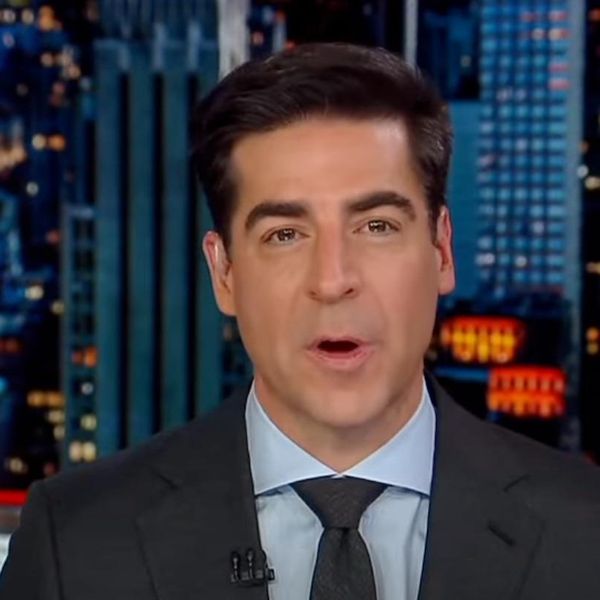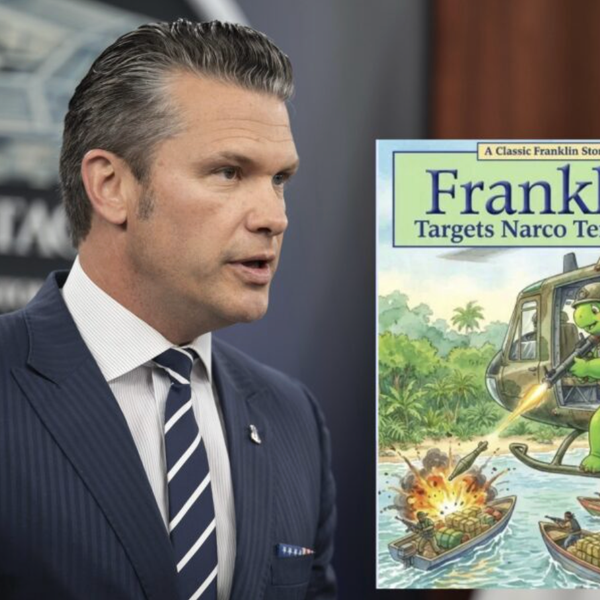On the evening of April 4, 1968—barely two hours after Martin Luther King Jr. was assassinated on a motel balcony in Memphis—President Lyndon B. Johnson addressed the nation from the White House. His words were brief, solemn, and unmistakably presidential:
“America is shocked and saddened by the brutal slaying tonight of Dr. Martin Luther King.”
Johnson condemned the assassination in unambiguous moral terms. He called on “every citizen to reject the blind violence that has struck Dr. King, who lived by nonviolence.” And then he offered a prayer that King’s death would “strengthen the determination of all men of good will to work for understanding, and for justice, and for the rule of law.”
In the same breath, Johnson turned his remarks outward. He urged Americans to “stand against the poison of hatred which has led to this tragedy.” And he reminded a country reeling from yet another political murder that “we can achieve nothing by violence. We can achieve everything by working together.”
The Johnson who delivered those words was in profound political trouble. Just a week earlier, battered by public opposition to the Vietnam War and facing revolt from within his own party, he had stunned the country by announcing that he would not seek reelection. The very man who now appealed to nonviolence had spent much of the previous year clashing bitterly with King over the war in Southeast Asia.
By any cynical calculus, Johnson might have tried to spin the assassination into political advantage. He might have underscored the rupture between himself and King, or cast the tragedy as vindication of his own beleaguered presidency. Instead, he rose to the occasion.
And, not incidentally, the Democrats lost the bitterly divided election to Richard Nixon, who ran on a program of law and order. (Nixon too was appropriately mournful, suspending all political activity in the two weeks after the assassination.) Historians often point to this moment as marking the country’s political transition—from the broad consensus of the Great Society to the bitter polarization of the Southern strategy and its aftermath that afflicts us still. Yet Johnson, the consummate political animal, chose a higher road.
The following day, Johnson spoke again, this time in longer form. His message was consistent:
“Together, a nation united, a nation caring, a nation concerned, and a nation that thinks more of the Nation’s interests than we do of any individual self-interest or political interest—that nation can and shall and will overcome.”
Johnson passed the test of presidential leadership. It is, in truth, not a very high bar: every American president, faced with a national tragedy born of violence, has understood the duty to call for unity and reject violence.
Nearly 100 years earlier, Lincoln set the template in his second inaugural, conjuring “malice toward none” amid the carnage of civil war. Chester Arthur, elevated by Garfield’s assassination, called for calm. John F. Kennedy, after the murder of Medgar Evers, urged reconciliation.
Bill Clinton, in the wake of Oklahoma City, urged Americans: “Let us teach our children to resolve their conflicts with words, not weapons.” It was classic presidential cadence—words that sought not only to soothe the nation but to call out the better angels of our national character. These are the moments when Americans look to the president not as a partisan combatant but as a custodian of the national soul and a healer of bitter divides.
That is, until Trump.
After last week’s shooting of Charlie Kirk, Trump delivered what was likely the pettiest and most hateful presidential response to a national tragedy in American history. Instead of rising above partisanship, he canonized Kirk as a martyr for “truth and freedom.” He rattled off a list of supposed right-wing martyrs without acknowledging that political violence has touched all sides. He cast his own base as uniquely persecuted and left deliberately unmentioned the victims of hate crimes and political violence outside his camp. So in the days following the assassination of Minnesota Speaker Melissa Hortman and her husband earlier this year, Trump couldn’t even bother to offer condolences to Governor Tim Walz, saying, “I could be nice and call, but why waste time?”
Worse, Trump moved directly to assign blame: not to the shooter, not to the broader forces of hatred, but to his political adversaries. “Radical left” forces, Trump declared, had created the climate that encouraged this violence. In one press exchange he went further:
“We have radical left lunatics out there, and we just have to beat the hell out of them.”
The words, far from a call to calm and shared purpose, were an incitement to further confrontation. They came from the same place as his refusal on January 6, 2021, to condemn the insurrectionists who stormed the Capitol on his behalf. His instinct then, as now, was not to quell chaos but to feed it. Where other presidents have instinctively sought to dampen the flames, Trump reaches for gasoline.
Other presidents have stumbled at critical junctures. Nixon in the heat of Vietnam, Grant amid Reconstruction violence, Hoover during the Depression. But Trump’s embrace of hate and division is unerring and bottomless. He never fails to take the worst choice.
Trump is a dark figure, and this is a dark moment for America. Never before has a commander in chief so thoroughly conflated the nation’s needs with his own political fortunes, so reflexively exploited tragedy to sow greater discord. At a time when the country needs a call to unity, he supplies a fresh wave of division.
And he is not alone. Trump’s champions amplify his message. Hungarian Prime Minister Viktor Orbán, a favorite of the Trump right, echoed the line almost verbatim: “Charlie Kirk’s death is the result of the international hate campaign waged by the progressive-liberal left.” In the U.S., figures like Laura Loomer and others in Trump’s orbit repeated the script: blame the opposition, stoke grievance, sow chaos all while ignoring the political violence committed against their so-called enemies. It is a vile lie, but one that patriots are forced to fight against day after day.
The presidency has never been the province of saints. Johnson himself, brilliant and venal, lied relentlessly about Vietnam. Nixon resigned in disgrace. Grant’s administration was mired in scandal. Yet when tragedy struck, even flawed presidents understood the difference between personal ambition and national duty. Trump is the singular exception. He is simply incapable of unifying the country he proclaims to want to make great again. His compass points only toward division, hatred, and self-interest.
The question for the country is how to respond when the highest officeholder is the one modeling the worst instincts. Americans cannot rely on the president to supply the words of unity that once seemed automatic. That responsibility falls to us, and to leaders outside the Oval Office on all sides of the political spectrum who are willing to say plainly that violence is never an answer.
We already have our hands full trying to parry Trump’s weekly outrages against the Constitution.
But this is the added tragedy of the Trump presidency: in the moments when America most needs a voice of unity, it receives only the echo of its own divisions, amplified and distorted by the man charged with healing them.
And so we are left with the questions that Johnson and other presidents answered correctly without hesitation: Will America stand united against the poison of hatred? Will it reject violence as a political tool, even as it embraces diversity of thought? Will it choose the difficult path of working together? The answers, this time, must come not from the president, but despite him.
Reprinted with permission from Harrylitman.

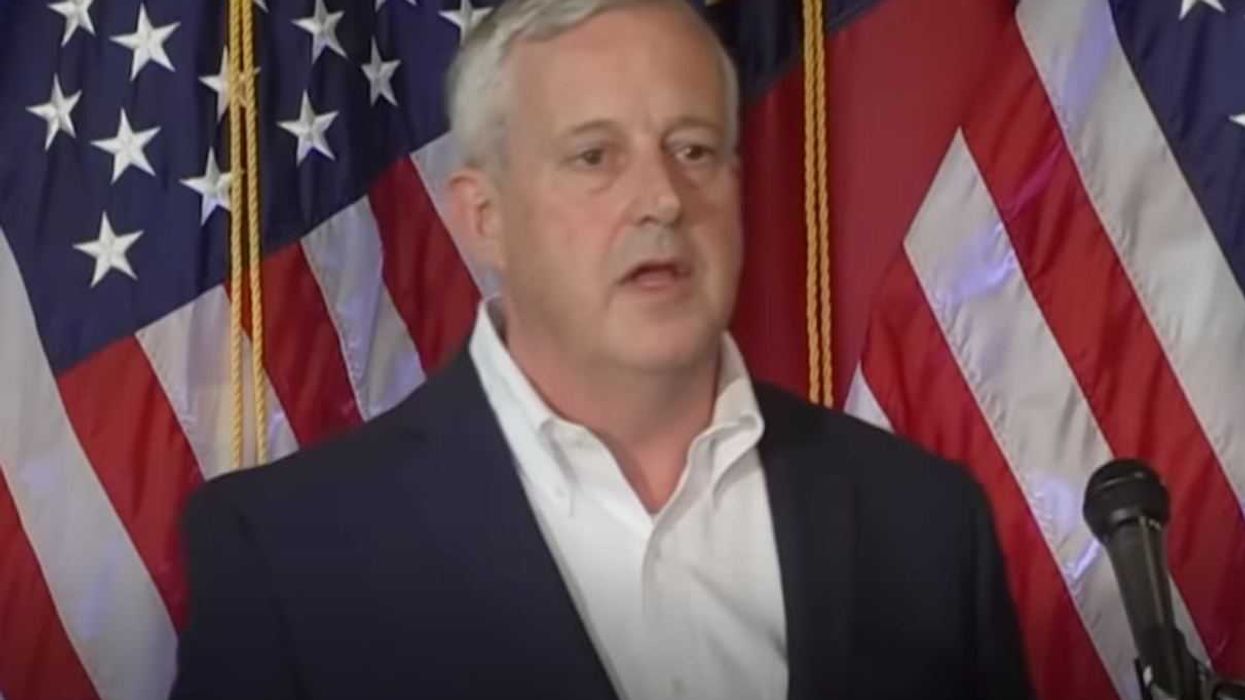
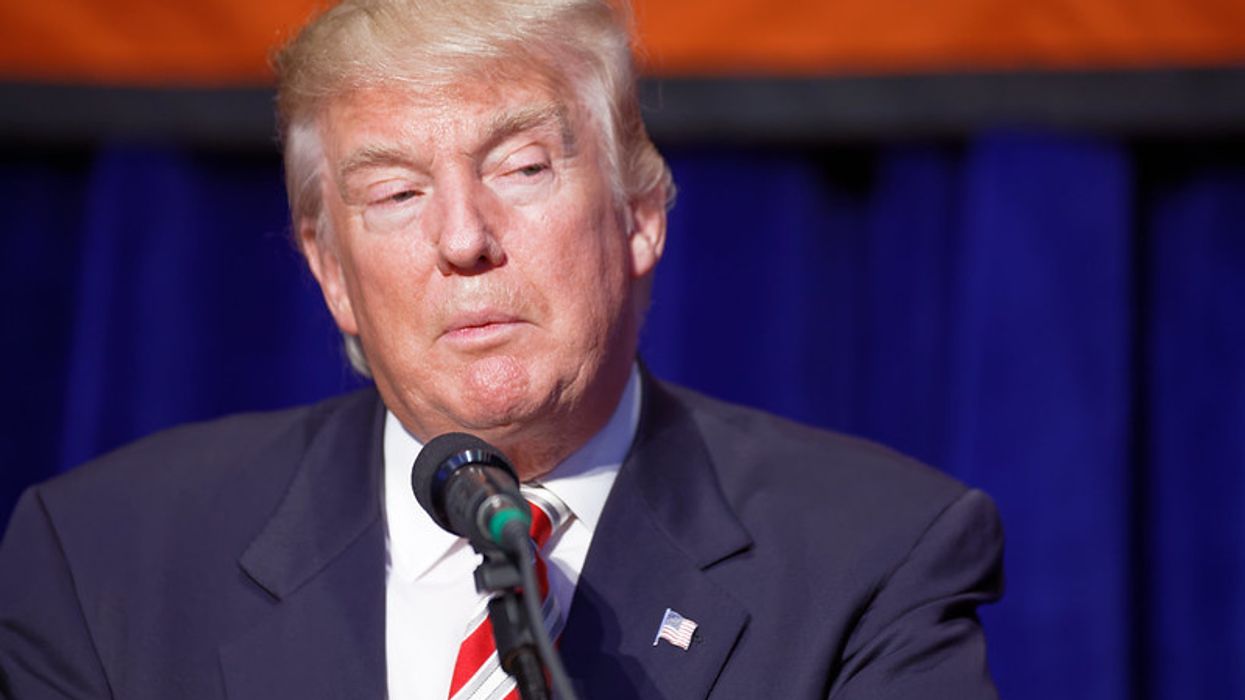

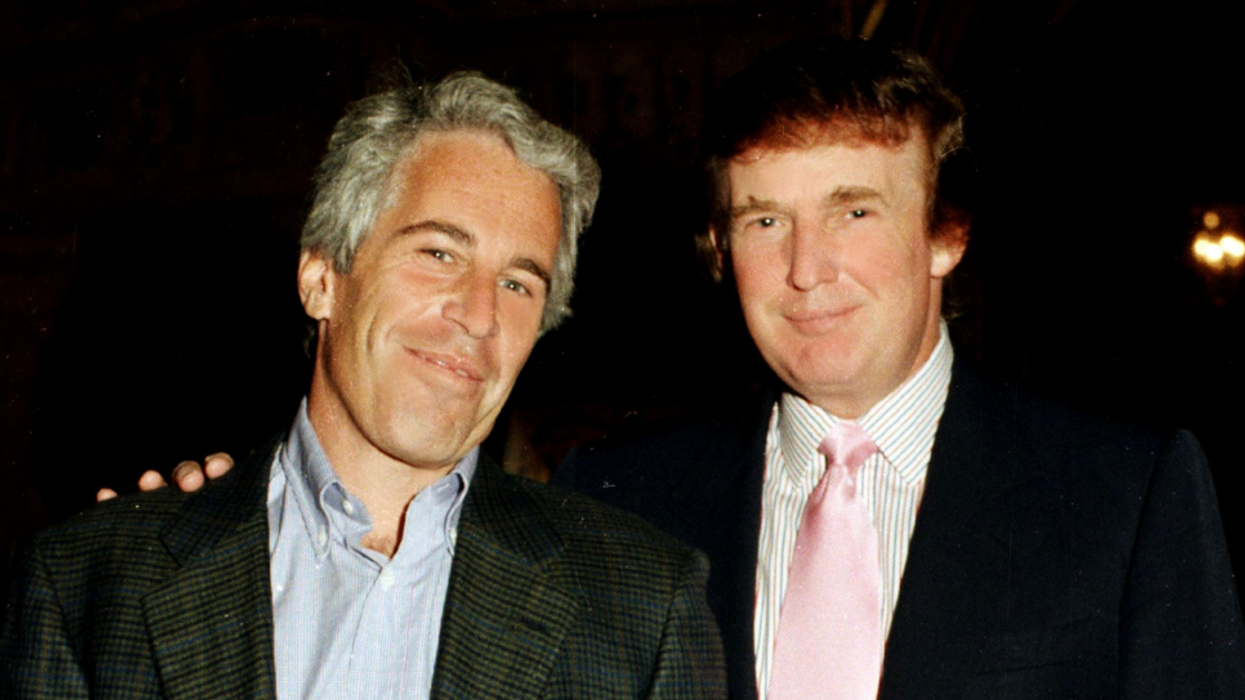
 Part of alleged Epstein "birthday card" from Donald Trump released by House Oversight Committee Screenshot from NBC News
Part of alleged Epstein "birthday card" from Donald Trump released by House Oversight Committee Screenshot from NBC News



